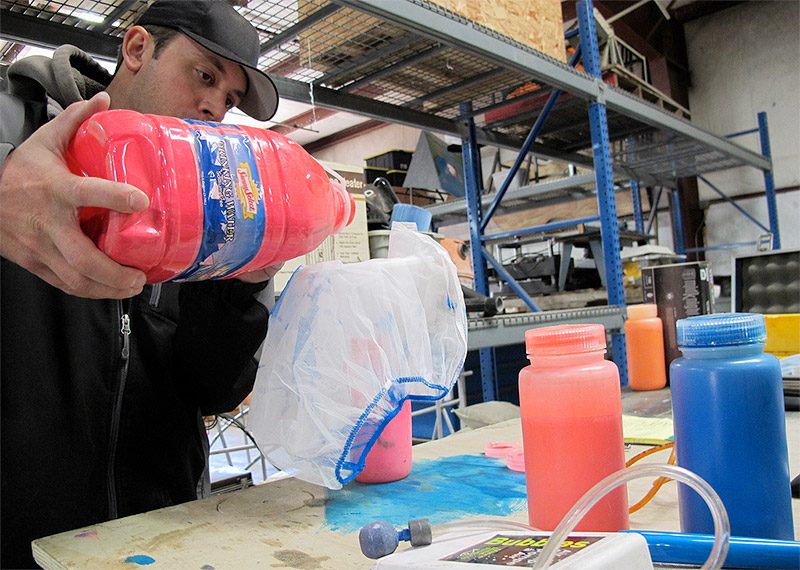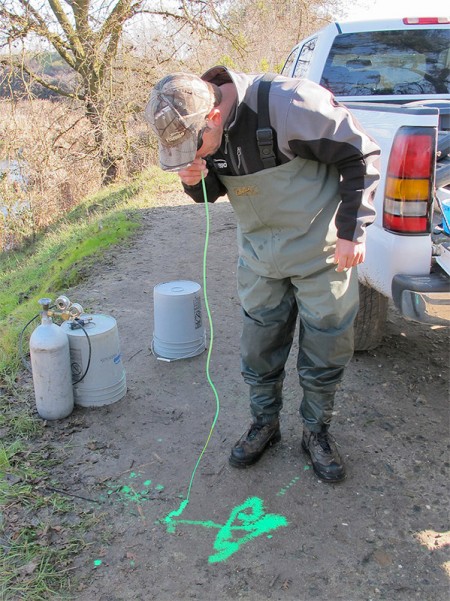Friday January 25, 2019
 With juvenile salmon outmigration monitoring underway, we are also testing the efficiency of our rotary screw traps. Efficiency tests require marking fish, which means things can get a little colorful…
With juvenile salmon outmigration monitoring underway, we are also testing the efficiency of our rotary screw traps. Efficiency tests require marking fish, which means things can get a little colorful…
An important step in marking fish is properly preparing the pigments. We use a specially formulated pigment deemed safe for use in cosmetics, which we carefully dilute and filter to keep our marking guns working properly. The water-based fluorescent pigment is made with ultra-fine particles that make it suitable for passing through the fine tips of pneumatic injectors, like the Med-e-jet and Dermo-jet marking guns we use.
Since we conduct regular rotary screw trap efficiency tests on all the tributaries of the San Joaquin River, we use a different color dye for each trap location. This allows fish caught further downstream in trawl surveys to be traced back to their river of origin based on their mark color. Our fish marking technicians take special care in thoroughly cleaning any remaining dye from our marking guns and tubing. This is especially important because the Med-e-jet marking guns are no longer manufactured and are very difficult to find, although we have managed to get our hands on a small cache. So while Mike may look like he’s creating green artwork, it’s all part of the clean up procedure. As long as he remembers not to suck in…

